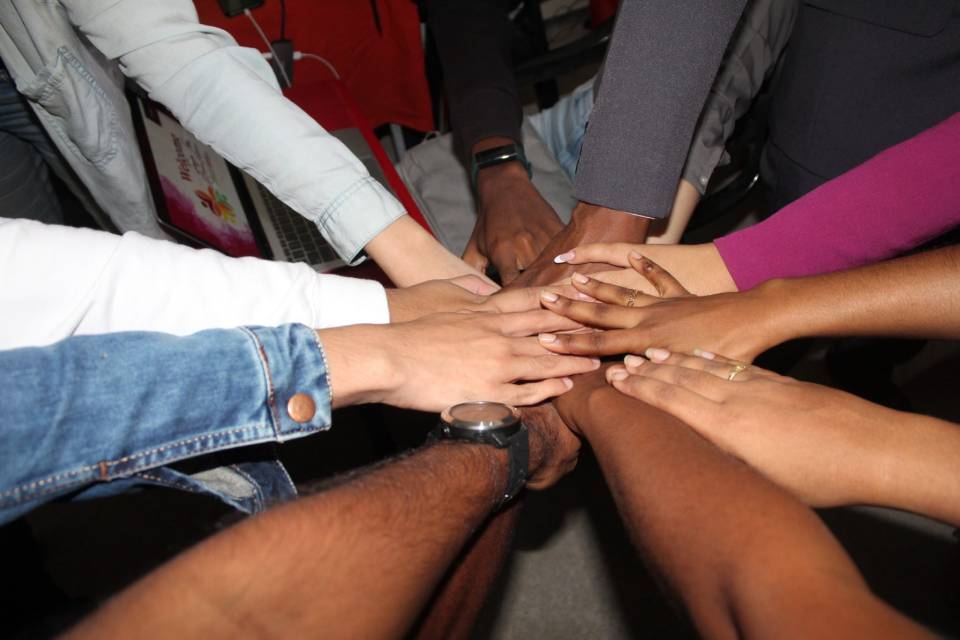5 Things You Should Know About Working with Offshore Developers

I take a sip of my scotch and soda and look at my computer screen. Looking back at me are 3 of the developers that work for Specter. Sachin, a lead offshore developer, Devdutt and Pankaj, two of our junior developers.
It’s 10pm and I’m having my evening cocktail while they are sipping on tea getting ready for the workday. It’s 10:30 am there, and we’re going over the technical specifications for a payment system we’re building together. Sachin, Devdutt, and Pankaj are located in Khargone, India (middle-western India).

I’ve been working with developers from all over the world for about 15 years now. China, Ukraine, Romania, Russia, Canada, Mexico, Columbia, Egypt, Brazil, and so on. I have always felt that there were people all over the world that had similar work ethics and, thanks to the internet, have always wanted to find those people.
Working with offshore developers requires a certain change of pace for those used to working with people in the same room. It requires some changes to the “norm” some of us have experienced all of our working lives. COVID made it a necessity to work with people you could only see on a computer screen, propelling the remote workforce forward a decade or so.
I have found my kindred spirits mostly in India, South America, and North America. This was through trial and error, finding people I really connected with, and a few other tactics.I think that all of the below tactics are of equal value, so don’t worry about doing them in any particular order, and try and set the agreements with remote workers using the guidance below.
You Should Set a Working Overlap
A huge challenge is different time zones. Books like the 4 Hour Workweek boast about being able to hire a team 12 hours ahead that works while you sleep. While this is sort of true, it’s impossible without overlap. Teams in India are 12 – 13 hours ahead of where I am. This means that when we’re each respectively starting work, the other is usually having dinner.
I have developed what I call the 2 – 3 solution. Having a 2 – 3 hour overlap at least 2 – 3 times as week. Some people prefer to do this every day, I’ve found that a more consistent balance is to schedule a few hour overlap a few times a week. I also find myself texting the team at night before bed, responding to a few questions that might have come up.
What usually doesn’t work is having one of the teams work nights. Having someone work the graveyard shift for knowledge work is tough. I have had offshore developers who work during my day-time (even though it’s their night time) and inevitably they always come to you a few months later and want to go back to working their day time. Just like you or I would, most likely! Very few people like working graveyard, and it’s a better long term fit to plan for overlap.
You Should Create an Assembly Line System
Have you noticed that iPhone after iPhone keeps coming out after Steve Jobs has passed away? Or that Microsoft supports and releases better versions of Windows every few years, even though Bill Gates has long left the helm? True leaders build and hire people that can continue the legacy of the company without them.
This is done by setting up processes and procedures that are very detailed on what is expected from every role. For each person within that role. If you got and start a job at Netflix tomorrow as junior level programmer, there isn’t a lot of guess work as to what you need to do during the day.
The same should be true for your company. You should have a very detailed process on how you scope (plan) for projects. How that plan is turned into tasks. A tight system of process and project management helps convey the scope to the overseas team working on your project, and keeps everyone in different timezones on the same page.
You Should Develop Consistent Communication Practices
On November 19, 1863, Edward Everett, the best-known orator of the time, gave a two-hour long dedication speech. It was quite a speech too. Over 13,000 words long. Everett delivered the speech without notes, including comparisons to wars through history, and an exhaustive description of events leading up to the infamous Battle of Gettysburg during the American Civil War.
He concluded the speech by saying:
Surely I would do no injustice to the other noble achievements of the war, which have reflected such honor on both arms of the service, and have entitled the armies and the navy of the United States, their officers and men, to the warmest thanks and the richest rewards which a grateful people can pay. But they, I am sure, will join us in saying, as we bid farewell to the dust of these martyr-heroes, that wheresoever throughout the civilized world the accounts of this great warfare are read, and down to the latest period of recorded time, in the glorious annals of our common country there will be no brighter page than that which relates THE BATTLES OF GETTYSBURG.
It’s more than likely that this is the first time you’ve ever read that grand speech. After Everett’s speech Abraham Lincoln came on stage and delivered a short, 272 word speech. His speech went something like this:
Fourscore and seven years ago our fathers brought forth, on this continent, a new nation, conceived in liberty, and dedicated to the proposition that all men are created equal. Now we are engaged in a great civil war, testing whether that nation, or any nation so conceived, and so dedicated, can long endure. We are met on a great battle-field of that war. We have come to dedicate a portion of that field, as a final resting-place for those who here gave their lives, that that nation might live.
You have likely read and heard those words dozens of times in your life. This immortal address became the big speech. It is one of the most famous speeches in American history. The short, promptly delivered speech.
A lot of business leaders agonize over and deliver scopes and presentations to their employees they hope will be remembered. The same type of speech delivered in Hollywood, the motivational-plot device. This is what the eminent leader does.
In real world research, this isn’t usually the case. The leaders and managers that get stuff done aren’t the silver-tongued orators or the big speech givers. They are the ones, like Lincoln, who deliver the short and to-the-point messages. They avoid the big speeches and, when they are with their teammates are very vocal.
This is something I have personified with remote workers and overseas workers. The small and constant banter. The consistent check-ins and over-communication. Taking the extra time to ping them during the working hours. Checking-in and keeping them from going in a silo.
When you are working with your remote workers, focus on the consistent and persistent check-in. Encourage them to speak up and ping you. Don’t rely on a long project scope no one likely read, or vague monologs delivered on Zoom. Effective teams talk to each other, and if your team isn’t talking, they aren’t being effective. Skip the grandiose speech and replace it with the consistent and bite-sized chunks of communication.
You Should Treat Them Like Your Team
This is unfortunately the silver bullet in being able to work with offshore developer teams. Stop acting like they’re some robotic servant you hired off the internet. It’s extremely beneficial to know about their culture. When they say they have a national holiday, ask about it!
We have a gift right now that we can meet and talk to people all over the world. The “water cooler talk” should not go away just because there isn’t a water cooler. Talk them, ask about their lives and their families.

You don’t have to go overboard and get overly personal, but talk to them like you would normal co-workers. Make sure they take days off, and make sure you know appreciate them as the unique employees they are.
I’ve flown out developers before and they’ve stayed at my house. It was so amazing, and I felt so lucky I had the opportunity to share cultural experiences with people like that. I’ve had deep conversations about things we see in the respective media, and I’ve made some of my best friends that I’ve never met in real life.
This type of connection is something we are blessed with in our day and age, and if you work with overseas teams you should take advantage of it. They are co-workers just as much as the cubical mates you had in the office. Remote doesn’t mean removed.
You Should Meet Them in Person At Least Once
This one is tricky, but with the world opening up post-pandemic it’s so important to do meet-ups. Go to their country, have them come to yours. Get different people together at least once, it’s well worth the effort. Traveling isn’t as expensive when you plan ahead, and a lot of it can be used as tax write-offs.
I have worked with people I’ve never met, but even working with someone you’ve met only once helps connect you more. In the years I’ve worked with remote workers and hired people off the internet, the closest ones have generally been ones I’ve met with in person. Shared meals with, worked together in the same room.
That doesn’t mean you always have to be in person, sometimes once a year or less is more than enough But try and get out there and meet them outside the confines of the internet and web cams. You’ll develop experiences that will last a lifetime, and bonds that will help connect your workforce.